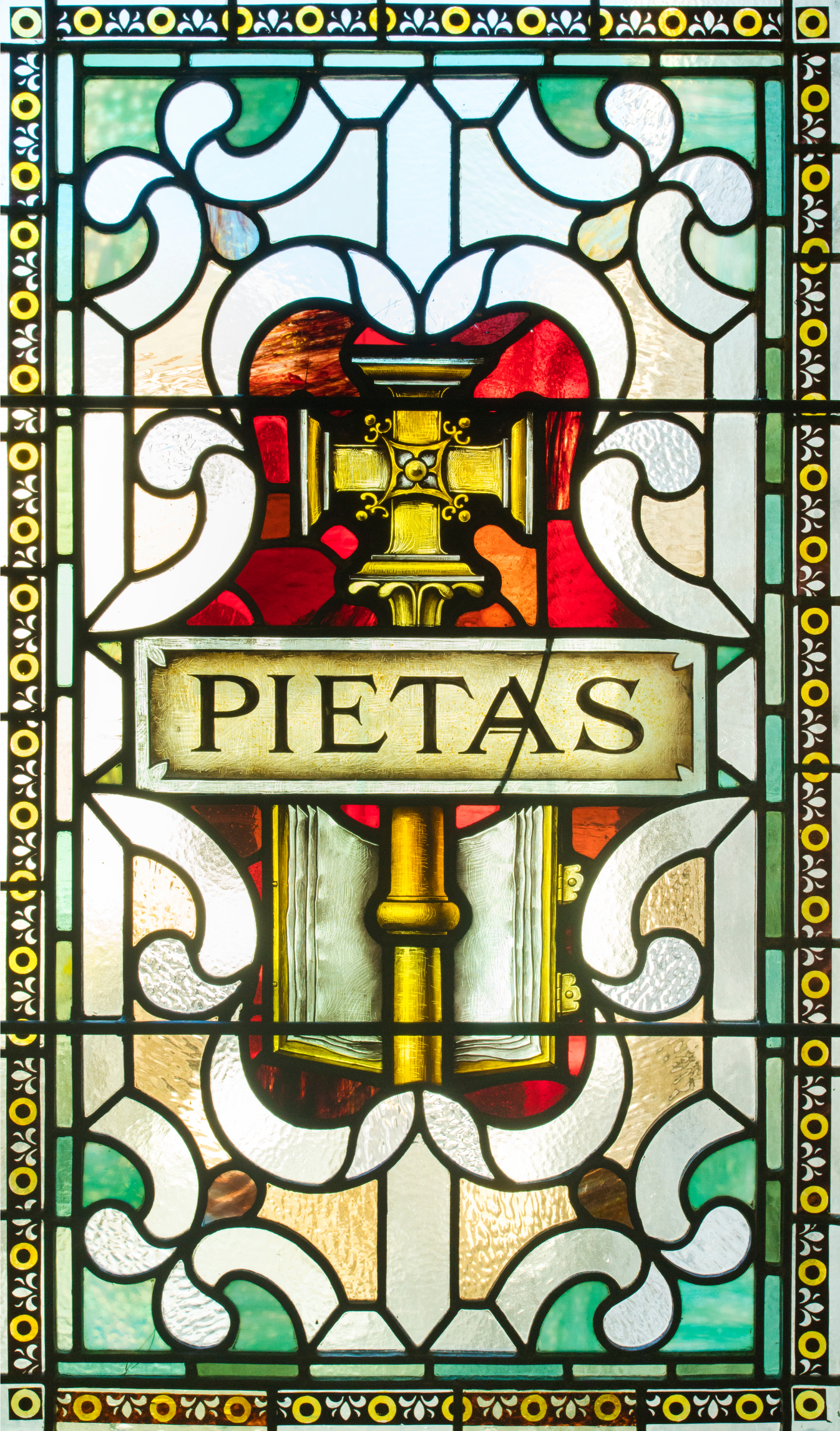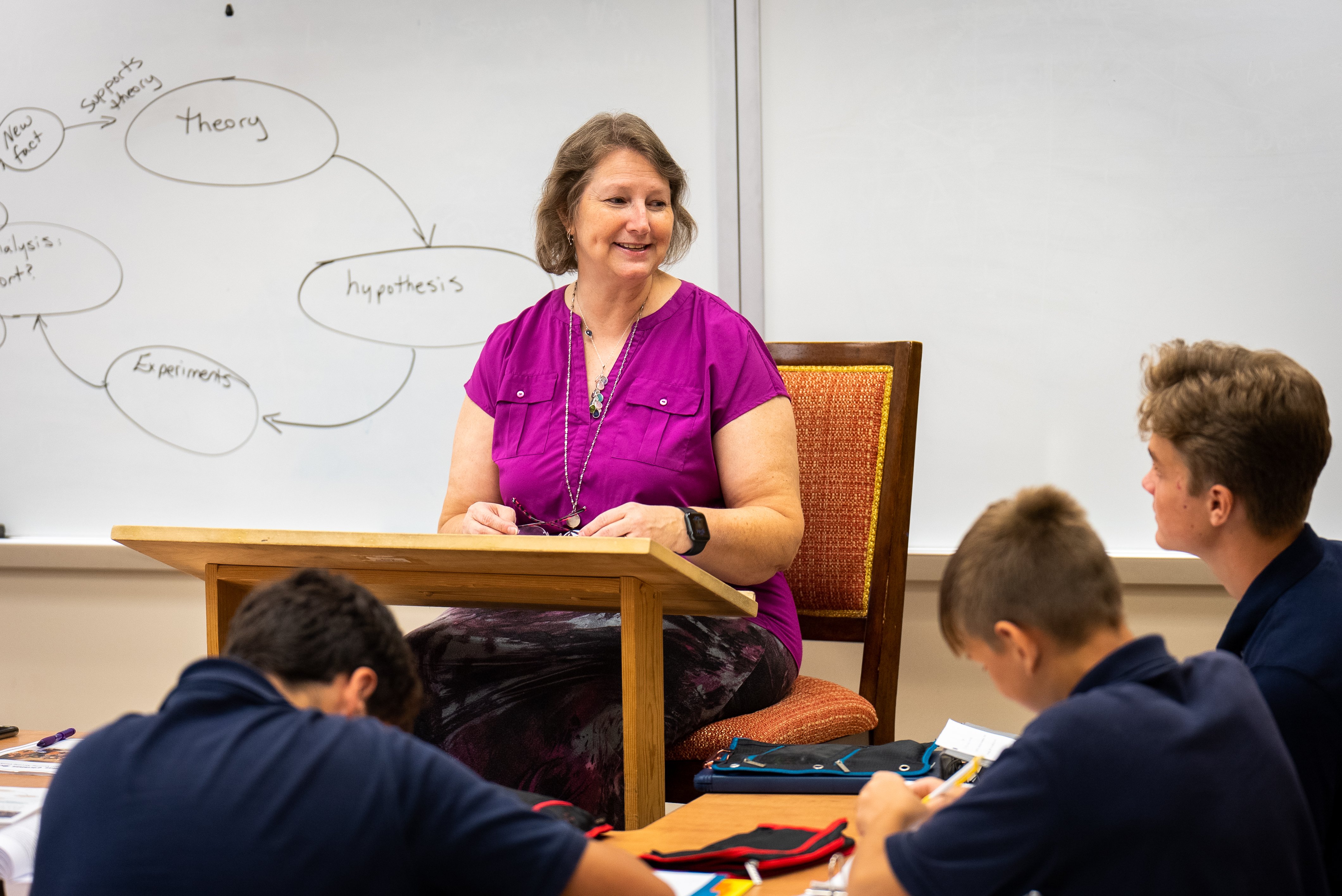Rather than a random group of dots, the various facets of education should connect like a column of ants traversing a picnic blanket. Last Friday, I had the privilege of watching junior kindergartners retelling four classic fairytales using student narration and finger puppets. Later that evening, I listened to three students present and defend their senior thesis projects. Contemplating these examples drawn from the beginning and end of a Trinitas education is worthwhile for thoughtful parents serious about the kind of education they want for their children.
Topics: Blog Posts, School Life, Classical Education, Thesis Projects, Public Speaking, Parent Involvement, Virtue
Last week in this space, we considered how Trinitas is distinctly different in our classical pedagogy. This week, we’ll note together how Trinitas is distinctly different in our classical content and in our Christ-centered instruction. And, most importantly, how all of these things contribute to our distinctly different Christ-centered culture.
The next thing that makes Trinitas different is what we teach.
Topics: Blog Posts, Classical Education, Christian Education, Christian Living, Secular Education
What parent wouldn’t want the best education for their child? To help make that decision, parents need information about the educational options available to them. If you aren’t comfortable with the status quo or want to give your children a better education than the one you received, maybe it’s time to consider a distinctly different kind of education.
The government schools, and in many cases even the Christian schools, have been weighed and found wanting, and so we are all looking for something distinctly different for the education of our Christian children. Consider the three main ways a Trinitas education differs sharply from government schools and even other Christian schools and then explore the reasons why we should be different in these ways.
Topics: Blog Posts, Classical Education, Christian Education, Secular Education
It's easy to assume that because classical Christian schools like Trinitas are not publicly-funded, government schools, they must be substantially the same as other private Christian schools of which there are many in our area. This understanding, however, is fundamentally flawed. Since its inception in 1999, Trinitas has maintained a commitment to a classical approach to Christian education which has resulted in the school being accredited by the Association of Classical Christian Schools (ACCS). To aid in understanding the differences between traditional Christian schools and classical Christ-centered schools like Trinitas, consider the following indicators of a classical approach to education.
Topics: Blog Posts, Classical Education, True Education, Teaching, Truth, Goodness, and Beauty
Whether as a component of a feast day or in preparation for the Winter Ball, training in formal dancing is an important facet of a Trinitas education. This is because “Education is not merely an intellectual affair, no matter how intellect-centered it must be, because human beings are not merely minds. As creatures made in God’s image, we are composite beings—unions of soul and body.”[1] Thus Trinitas students are taught reading, writing, and dancing so that they can glorify God with their minds and also with their bodies by becoming socially graceful.
Topics: Blog Posts, School Life, Classical Education
As a father of five, I am greatly concerned with the cultivation of virtue in the hearts of my children. Frequent thought and active parenting has been invested in training my children in honesty, diligence, self-control, and respect. The lack of these virtues is tough to disguise. When children are disrespectful and lazy, succumbing to every desire of their flesh, they create what my mother would refer to as “a scene.” Yet behind the more common virtues, lies one that receives precious little airtime – Piety.
Topics: Blog Posts, Parenting, Classical Education, Christian Education, Virtue
The pursuit of wisdom consists of basic things: reading boni libris, competing with a charitable heart on the field, turning in commonplace books, parsing Latin and Greek, working out complex Calculus problems, reciting poetry, memorizing Scripture, crafting essays, exercising your vocal cords in choir, and submitting your best art (even if you don’t think you’re much of an artist). Well, maybe it is better to say that these are the concrete ways you will pursue those lofty aims advocated by Aristotle, namely phronesis and techne. Both of them are arts aimed at the cultivation of the soul, phronesis meaning moral virtue, and techne meaning skilled virtue. Morals and skills. Or to use Paul’s language, “by the mercies of God, that you present your bodies a living sacrifice, holy, acceptable to God, which is your reasonable service. And do not be conformed to this world, but be transformed by the renewing of your mind, that you may prove what is that good and acceptable and perfect will of God” (Romans 12:1-2).
Topics: Blog Posts, Classical Education, True Education, Reading, Virtue
The Association of Classical and Christian Schools (ACCS) is the only accrediting body in the country that caters exclusively to classical Christian schools like Trinitas. Although the organization has over three hundred member schools, only a small fraction of those schools have met the rigorous standards required to become accredited. Trinitas has been associated with the ACCS since the school's founding over twenty years ago and has been an accredited member for over half that time.
Of course, a school doesn't have to be accredited to be a good school - there are many smaller classical Christian schools that offer an excellent education - but accreditation with the ACCS does assure parents that the school is committed to the highest standards of excellence in its pursuit of classical and Christ-centered education.
Topics: Blog Posts, Classical Education, Admissions

-2.png)







